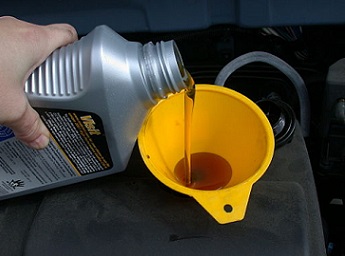Oil. It’s the lifeblood of your engine and, yes, one of those pesky maintenance services that seems to cycle way too quickly. Oil changes may be inconvenient, but they are necessary to maintaining the health and longevity of your engine.
So, how happy is your engine? The service at technicians at Great Bridge Auto Service can tell you. We perform both conventional and synthetic oil changes and cap off all fluids as a courtesy.
Common Questions
What exactly does oil do?
- Keeps the engine components working: It’s close quarters your engine with some spaces between parts being as small as 1/1,000 of an inch. The oil’s lubrication provides a slippery cushion that keeps the parts from grinding together.
- Cools the engine: Your engine functions by a series of mini-explosions that generate tremendous heat. The oil helps pull this heat from the combustion chamber where it is slightly cooled when it circulates through the oil pan. The oil pan rests beneath the engine where air can rush over it bringing the temperatures down.
- Cleans the engine: Most oils contain additives that help clean the varnish and carbon that would otherwise collect in your engine.
How often should I have my oil changed?

The old standard was every 3,000 miles, but that has fallen away with today’s newer vehicles. Oil life monitoring systems are the norm in modern vehicles. This system uses sensors to monitor conditions that affect oil life and run them through math algorithms to predict when your vehicle will need its next oil change.
Typically, oil changes can range from 5,000 – 8,000 miles under normal driving conditions. Under “severe” conditions, you should change the oil more frequently. When in doubt, use your owner’s manual as a guide.
What conditions affect oil life?
- Hot climates
- Carrying heavy loads/towing a trailer
- Driving where there is dust or sand
- Stop and go driving
- Having an older engine that burns oil
What happens if I don’t do regular oil changes?
- Oil becomes thicker making it harder to lubricate the engine’s moving parts and causing steel parts to erode
- Buildup will occur in the crankcase, around the camshaft and valves
- Pistons can seize up or the camshafts become damaged
